2018-2019 Speaker Series
The Puget Sound Chapter of the American Cetacean Society would like to sincerely thank the following people for giving a presentation at one of our monthly Speaker Series meetings.
Click on any of the Abstract links for a summary and a brief bio about the talk Many abstracts also contain additional related resources.
19 June 2019 - Jennifer Tennessen, NOAA Affiliate
Tagging along: Observing the underwater lives of resident killer whales Abstract
Cetaceans spend the majority of their lives underwater, completely out of view of humans. How, then, can scientists study important behaviors related to their survival? In this presentation I will share how a suction cup-attached archival tag the size of a cell phone has revolutionized marine mammal behavioral ecology research. I will share findings from our ongoing study of the underwater behaviors of Southern Resident killer whales, focusing on how sound and movement information from tags has revealed critical insights about how they pursue and capture salmon in the Salish Sea.
Jennifer Tennessen is a biologist with Lynker, LLC, and an affiliate with NOAA Fisheries’ Northwest Fisheries Science Center in Seattle, WA. She has over a decade of experience studying marine mammals, bioacoustics, and ecophysiology. She received her Ph.D. in Ecology from Penn State University, and her M.S. in Conservation Biology from the University of Wisconsin-Madison.
15 May 2019 - SCARS: Politics in the Big Blue
a documentaryAbstract
A documentary produced by Karin Hartman and Pieter van der Harst, hosted by the Nova Atlantis Foundation, is a film focusing on the life history of Risso’s dolphins studied in the Azores since 2000.
Synopsis: In 1999, a young (Dutch) woman changed her life to study the unknown Risso’s dolphin in the Azores. This film shows what she learned over 18 years of fieldwork. It contains spectacular underwater and drone shots, unraveling special behavior of these dolphins. It explains how males form stable groups while females with calves form nurseries, and why male politics are crucial for reproduction. Also, it reflects on the impact of whale watching, why commercial swimming with these dolphins should be banned and why this area is important in Europe and should be designated as a Marine Protected Area. This is a compelling personal story about the highs and lows of a life dedicated to studying Risso’s dolphins, with unique insights into their life history, and both endearing and confronting footage of their behavior.
A documentary produced by Karin Hartman and Pieter van der Harst, hosted by the Nova Atlantis Foundation, is a film focusing on the life history of Risso’s dolphins studied in the Azores since 2000.
The film had its world premiere during the Wildlife Conservation Film Festival in New York on 22 October 2018 and won the "Award for best Drone Footage". Next, Scars won the "Wildlife" Award at the International Ocean Film Festival and is also an official selection of the IOFF. The film is submitted to other international film festivals related to wildlife conservation with the aim to raise awareness.
Running time: 64 minutes
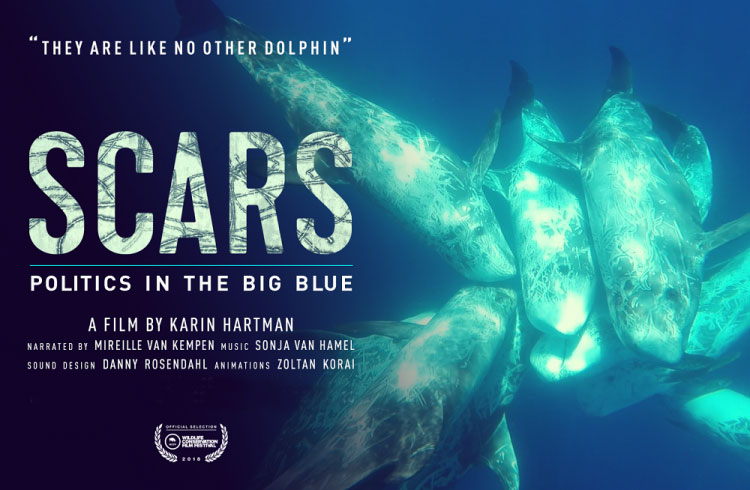
17 April 2019 - Erin Gless
Humpback Whales of the Salish Sea: Past, Present, and Future... Abstract
Humpback whales are among the most recognizable and beloved whales in our oceans. After decades of industrialized whaling, these behemoths were almost lost from the Salish Sea forever. In just the last few years, however, humpback whales have made a triumphant return to local waters, now numbering more than 400 identified individuals. Join as we learn about their complex social interactions and surprising migration patterns as well as what challenges humpback whales might face in a modern Salish Sea environment not yet adapted to their presence.
Erin Gless is Lead Naturalist for Island Adventures Whale Watching. She holds a B.S. in Biology with Marine Emphasis from Western Washington University and has been part of the whale watching industry since 2008. Prior to moving back to Washington in 2015, she was a marine naturalist for San Diego Whale Watch and part of ACS - San Diego's Executive Committee. Erin has also volunteered with Birch Aquarium at Scripps Institution of Oceonography and the Alaska Whale Foundation's fluke identification project.
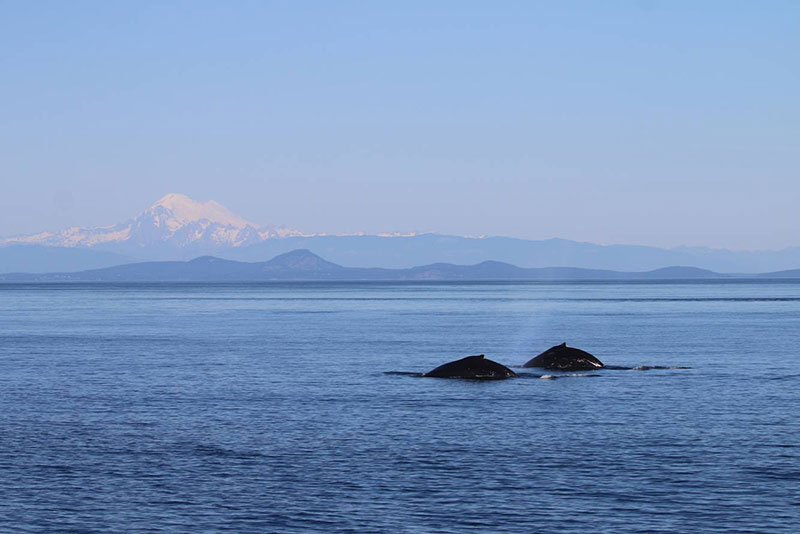
20 March 2019 - Russel D. Andrews Marine Ecology and Telemetry Research, MarEcoTel
How to Take the Temperature of a Whale... Abstract
When the health of a human being is questioned, one of the first things a doctor does is to measure your temperature. With multiple threats to the health of marine mammal populations and individuals, it would be nice to be able to take the temperature of a whale, both figuratively and literally. One important tool for biologists trying to quantify the impacts of human activities on whales and dolphins has been biotelemetry, allowing us to measure the movements and behaviors of cetaceans and to determine whether these are affected adversely by anthropogenic noise, pollution or other disturbances. However, tags can be invasive, so it is important to determine the impact of tagging before we can confidently apply it to endangered or at-risk species and be certain that the behaviors we measure with telemetry are unaffected by our methods. In his talk, Dr. Andrews will discuss the work that he and his collaborators have conducted to develop and improve biotelemetry methods for studying cetaceans, and how they have assessed the potential effects of those methods, as well as how they've used them to study a variety of species and questions, from the Artic to the Antarctic.
Russ Andrews is a behavioral and physiological ecologist, with a special interest in developing biotelemetry tools. He recently moved south from Seward, Alaska, where he held a joint research professor position with the University of Alaska and the Alaska SeaLife Center. He now resides in Kingston, Washington, and is Senior Scientist with Marine Ecology and Telemetry Research ( MarEcoTel).
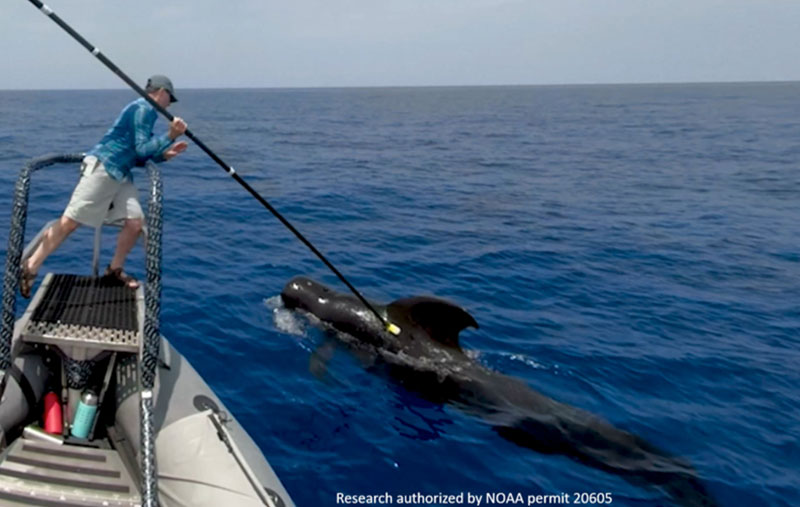
20 February 2019 - Cindy Rogers Elliser Pacific Mammal Research
Making a Mark: Photo-ID of harbor porpoises in the Salish Sea ... Abstract
Surprisingly little is known about harbor porpoises in the Salish Sea, despite the fact that they are one of the most abundant marine mammal species in the area. Through observation and photo-ID research Pacific Mammal Research (PacMam) is learning more about their population through the lens of the individual. In this talk learn all about harbor porpoises, the photo-ID research PacMam is conducting and what we have learned so far about this poorly understood marine mammal.
Dr. Cindy R. Elliser received her B.S. (2000) and M.S. (2003) in Biological Sciences from Florida Atlantic University (FAU) and received her Ph.D. in Integrative Biology from FAU in 2010. For 10 years she worked with Dr. Herzing and the Wild Dolphin Project studying Atlantic spotted and bottlenose dolphins in the Bahamas. In 2014 Dr. Elliser moved to the Pacific Northwest and founded Pacific Mammal Research to study marine mammals in the Salish Sea, particularly harbor porpoises and harbor seals. Dr. Elliser also teaches biology and related courses as an adjunct professor at Skagit Valley College.
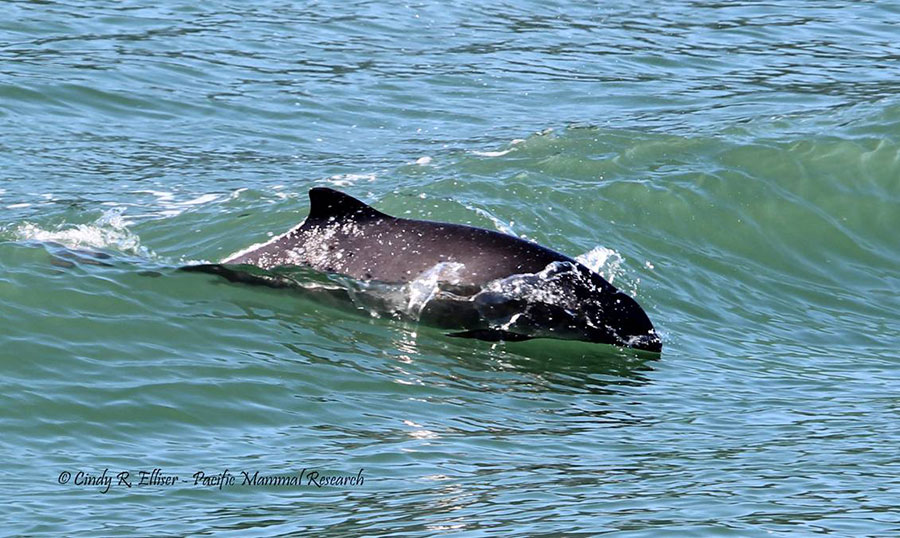
16 January 2019 - Lisa Yuodelis, Soundwatch
Surface active behaviors of the Southern Resident Killer Whales in response to vessel disturbance incidents... Abstract
Vessel disturbance is one of the top threats the endangered Southern Resident Killer Whales (SRKW) are facing. This study investigates how whale behavior changes when a vessel incident occurs and suggests that the SRKW may respond to incidents with specific social behaviors. Whale behavior was recorded every half hour when Soundwatch observers were on scene with the SRKW in the Salish Sea from June–July, 2018. The primary and secondary activity of the whales were also noted which were either traveling, social, resting, foraging, or milling. Incidents and change in behavior were recorded each time a vessel did not adhere to the federal guidelines for viewing whales. When an incident occurred, whale behavior changed 25% of the time, compared to 21% not changing, and 54% inconclusive. When behavior changed, whales mostly responded 32% of the time by displaying surface active behaviors or diving to avoid the vessel, or by changing direction 29% of the time. Among the surface active behaviors, tail slaps were observed half the time and breaches were observed a third. When these tail slaps and breaches occurred, travel was the top primary activity while social was the top secondary activity. This finding may suggest that breaches and especially tail slaps are a form of aggressive behavior the SRKW display towards vessels during incidents. The top secondary activity may suggest that tail slaps and breaches are a form of communication and that the SRKW may be communicating with each other when vessel incidences occur.
Lisa Yuodelis interned for Soundwatch, a boater education and monitoring program, part of the Whale Museum on San Juan Island. She attended the ACS International Conference this past November and presented her Soundwatch research project in the poster session. Orca whales were Lisa's inspiration for her major: Marine Biology & Conservation and she graduated from Seattle University in 2017. Her senior synthesis focused on researching ways that ocean warming is affecting the endangered resident orcas and chinook salmon and ultimately their biomass in the marine food web. Lisa also studied abroad in Bonaire, the Dutch Caribbean, where she became certified as a scientific diver and studied tropical marine ecology and conservation.
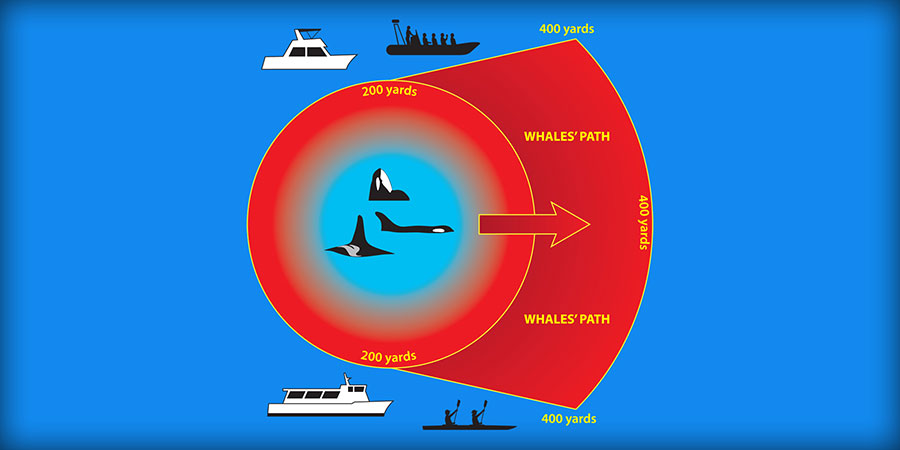
19 December 2018- on hiatus
21 November 2018 - on hiatus
17 October 2018 - Stephanie A. Norman, DVM, MS, PhD.
A Bitter Pill to Swallow: Examining antibiotic resistance in sentinel marine mammals of the Salish Sea...Abstract
Antibiotic resistance, a global concern, is a significant health issue of animals and humans. Resistant bacteria, a growing presence in marine life, are derived from land via humans, animals, and agriculture. A recently crowdfunded study will investigate presence of resistant bacteria in marine mammals of an urban ecosystem, the Salish Sea, in Washington State. The study will sample dead locally stranded harbor seals and porpoises to detect resistant bacteria and their possible linkages to land sources. The presentation will cover basic information about resistance and the extent of the problem and how this study will fit into efforts to characterize the presence of resistance in our local marine ecosystem and wildlife.
Stephanie Norman is a wildlife veterinarian and epidemiologist, involved in the aquatic animal health field, spanning invertebrates to top-level predators. She earned her veterinary degree from Texas A&M University, her MS in epidemiology at the University of Washington, and a PhD in wildlife epidemiology at UC Davis. Her specific areas of clinical and field research interest include understanding and interpreting various aspects of ocean health, including pathogen transmission in the aquatic environment, as well as those of concern to human health. She quantifies inherent differences in species susceptibility to diseases, as well as the effects of natural and anthropogenic stressors on disease outcome. The basis of her research and clinical efforts is to provide knowledge needed to help mitigate human impact on aquatic species and raise awareness of ocean health and the connection to human health.
19 September 2018 - Dawn Noren
Physiological Studies that Address Southern Resident Killer Whale Risk Factors and Data Gaps ... Abstract
My research primarily focuses on risk factors facing the endangered Southern Resident killer whales and addressing gaps in our knowledge of killer whale biology and behavior. I will be discussing my work on 1) killer whale energetics and prey requirements, 2) vessel impacts, 3) contaminant transfer from female killer whales to their calves, and 4) assessing killer whale body condition.
Dawn Noren joined the Northwest Fisheries Science Center in May of 2003. Previously, Dawn was a National Research Council (NRC) Postdoctoral Research Associate at the National Marine Mammal Laboratory at the NOAA NMFS Alaska Fisheries Science Center, Seattle, WA, where she conducted research on Steller sea lion juvenile body condition, fasting physiology, and diving. Dawn received a Ph.D. in Ecology and Evolutionary Biology from the University of California, Santa Cruz. Her dissertation focused on elephant seal body condition, thermoregulation, and fasting physiology. She also earned an M.S. in Marine Sciences from the University of California, Santa Cruz. For her master's thesis, she investigated the physiology of diving and thermoregulation in bottlenose dolphins. Dawn earned her B.S. in Biological Sciences with and emphasis in Marine Sciences from the University of Maryland.

